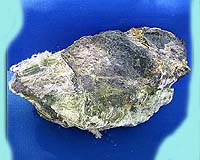| . |  |
. |
Beijing (AFP) July 22, 2010 Chinese authorities battled Thursday to contain an oil spill on the country's northeast coast amid reports it was spreading and as warnings emerged of a heavy long-term environmental impact. The government has mobilised hundreds of fishing boats and other vessels to clean up the spill that occurred in the port city of Dalian, but Greenpeace said many people thrown into the effort were reduced to using their bare hands. The spill happened last Friday after two pipelines exploded at an oil storage depot, triggering a spectacular blaze that burned throughout the weekend. Officials said shortly after the spill that about 1,500 tonnes of oil were spilled into the Yellow Sea off Liaoning province. A government estimate Monday said the slick had affected 435 square kilometres (around 170 square miles) of the Yellow Sea. However, a report late Wednesday said the slick had spread to 946 square kilometres, and stretched as far as 90 kilometres along the coast. The report appeared in the Shenyang Evening News, based in the provincial capital. The government has said about 40 special oil-skimming vessels were leading the clean-up and that 23 tonnes of oil-eating bacteria were being employed. China National Petroleum Corp, the country's biggest oil company and owner of the pipelines that exploded, said in a statement on its website Thursday that at least 400 tonnes of the spilt oil had been cleaned up already. Zhong Yu, a Greenpeace campaigner observing the clean-up efforts, however said many of the mobilised civilians and firefighters had no equipment or protective gear. "The citizens-turned-cleaners we saw yesterday in the sea basically did not have any protective gear and could only use their hands to clean up the oil," she told AFP by phone. Zhong said tourist beaches and other long stretches of coast were awash with black sludge up to 30 centimetres (one foot) thick near the shore. "There is a strong smell of acid and oil in the air," she said. The economic impact was already being felt by businesses in the area, with state press reports saying tourist beaches normally crammed with summer visitors were empty. Some beaches were officially closed to the public. The area also has a major fishing industry, but catches had been banned for now. A firefighter involved in clean-up efforts drowned on Tuesday after he entered the oil-slathered waters to try to clean a pump sucking up spilt oil, state media reports said. Authorities have expressed confidence in corralling the spill and have repeatedly pointed out the reported volume of oil is miniscule compared to the US oil disaster in the Gulf of Mexico. But Zhao Zhangyuan, a researcher with the China Environmental Science Research Institute, told the Shanghai Morning Post the impact on marine life and on humans -- as the pollution enters the food chain -- could last 10 years. "The most critical impact is on human health. As the oil decomposes, substances that are produced, many of them carcinogenic, can cause serious ecological damage," he was quoted as saying. Greenpeace's Zhong said the impact could last even longer. "One thing is certain: the pollution from the oil spill cannot be completely cleaned up. (Health) hazards from any oil spill will last long-term and affect one to two generations," she said. An oil tanker berthed at the Dalian harbour Thursday for the first time since the accident, state-run Xinhua news agency said. Dalian is a major Chinese oil production and distribution hub.
Share This Article With Planet Earth
Related Links Our Polluted World and Cleaning It Up
 Asbestos trade thriving in developing world: report
Asbestos trade thriving in developing world: reportWashington (AFP) July 21, 2010 Despite proven links to cancer, a ban in the European Union and four other countries, and damning scientific studies, asbestos is still selling like hotcakes in the developing world, a report said Wednesday. An investigation conducted by the International Consortium of Investigative Journalists and the BBC found that the asbestos industry has ignored waves of asbestos-related disease that h ... read more |
|
| The content herein, unless otherwise known to be public domain, are Copyright 1995-2010 - SpaceDaily. AFP and UPI Wire Stories are copyright Agence France-Presse and United Press International. ESA Portal Reports are copyright European Space Agency. All NASA sourced material is public domain. Additional copyrights may apply in whole or part to other bona fide parties. Advertising does not imply endorsement,agreement or approval of any opinions, statements or information provided by SpaceDaily on any Web page published or hosted by SpaceDaily. Privacy Statement |